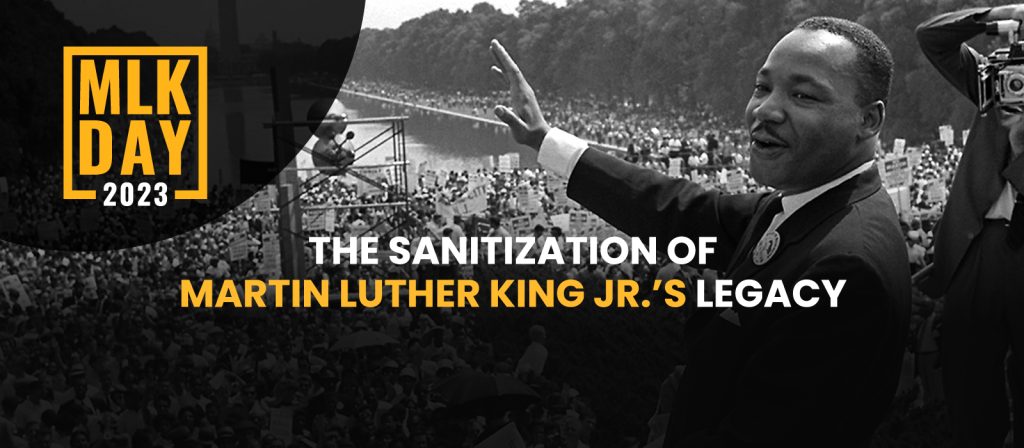
ICNA CSJ
Published On: Sat, 14 January 23
Martin Luther King Jr. (MLK) was a revolutionary during the struggle for civil rights amongst Black Americans. A popular figure whose impact is known throughout the country, culminating in a national holiday, MLK’s legacy is one that has been washed down in its intensity and intention. The American project has oft used Black revolutionaries and leaders to create an appeasement with American-ness. Figures like MLK and Rosa parks are evoked to signify peaceful protest. Although peaceful protest is a park of the legacy that MLK leaves behind, his views on civil rights, his misquoted speeches, and his radical views later in life are left out of the conversation on a day that claims to remember him.
Martin Luther King Jr., during his life, was not a revered figure amongst white Americans. In 1966, a Gallup poll measured his approval rating at 32% positive and 63% negative. In December of that year, a Harris poll concluded that 50% of whites felt that King was hurting “the negro cause of civil rights,” while 36% felt that he was helping. When he was assassinated in 1968, three out of four white Americans did not approve of him. MLK was not that sanitized figure that the establishment parades today – rather, he was a radical. He fought against police brutality, advocated for a universal basic income, and condemned those against equality.


